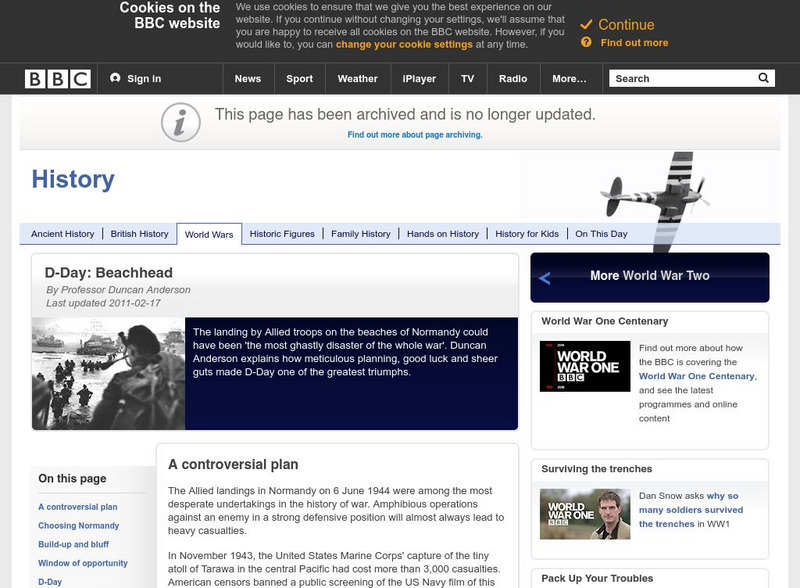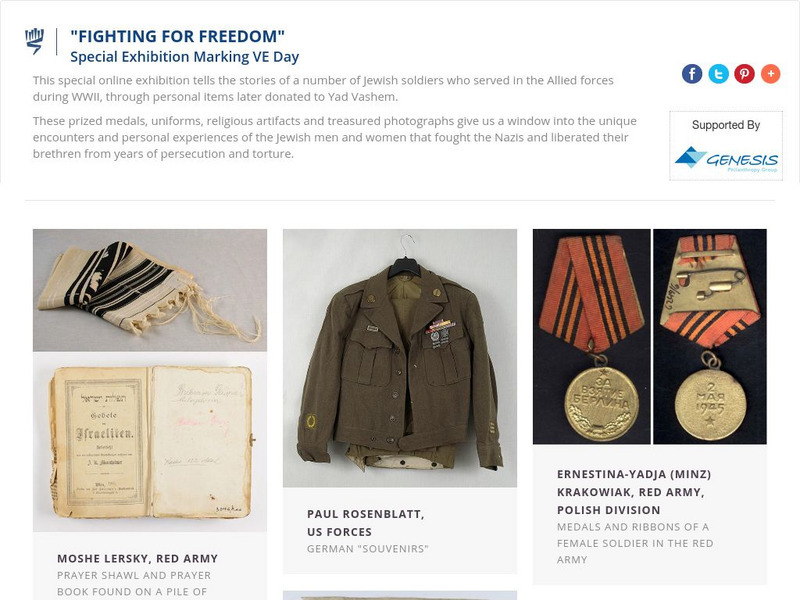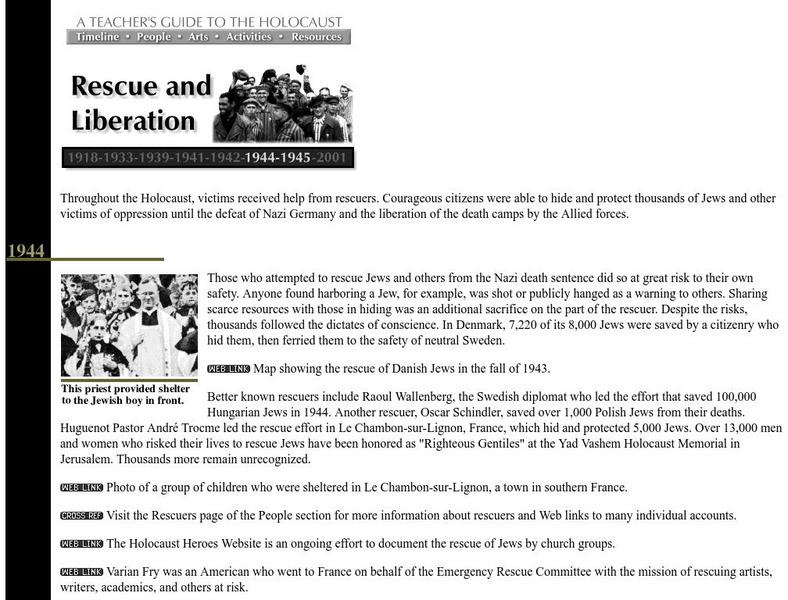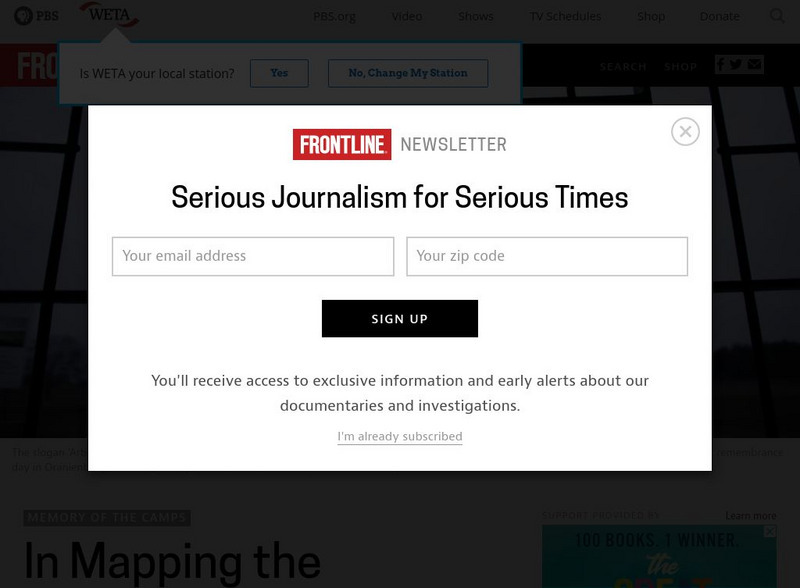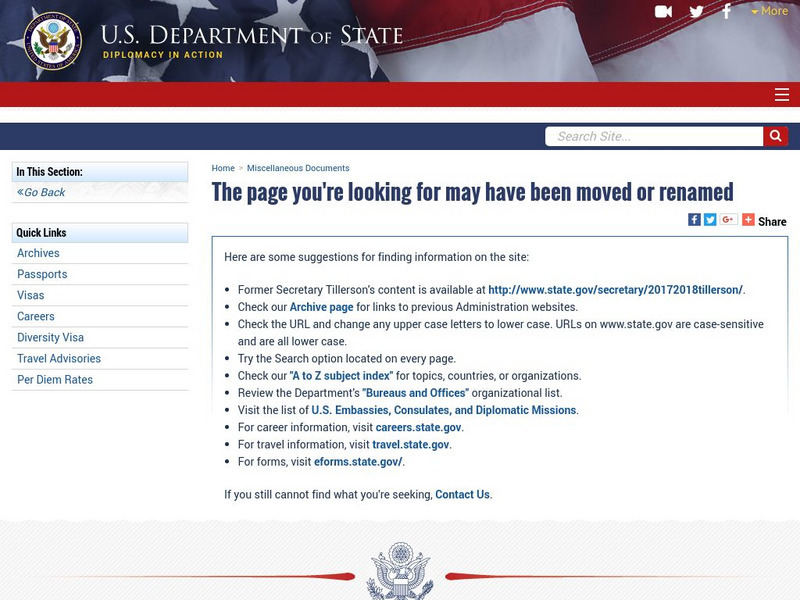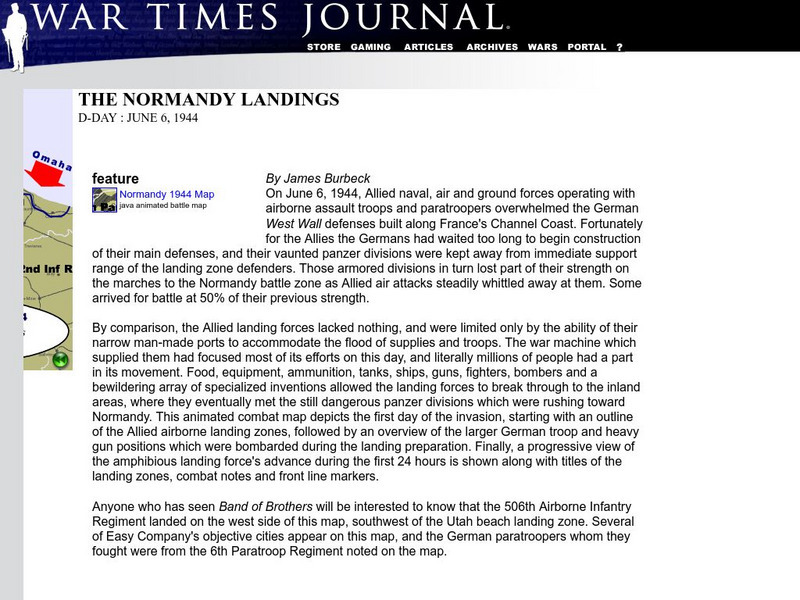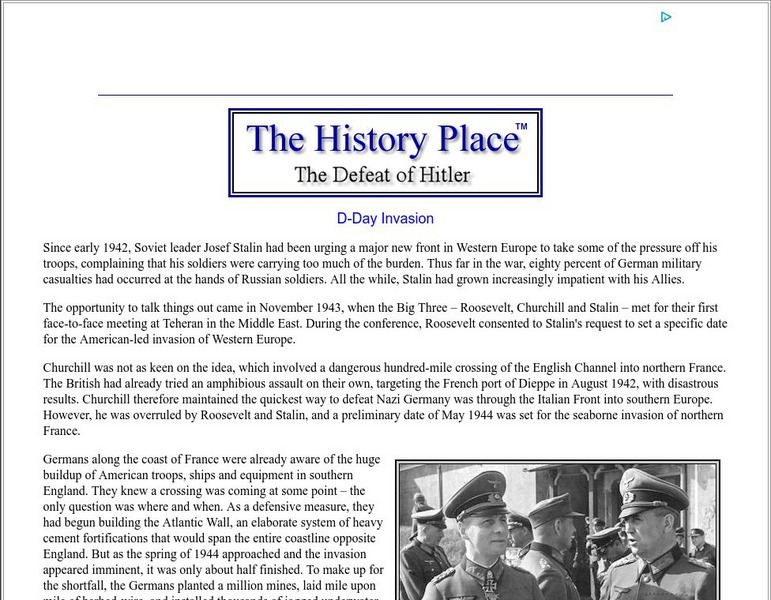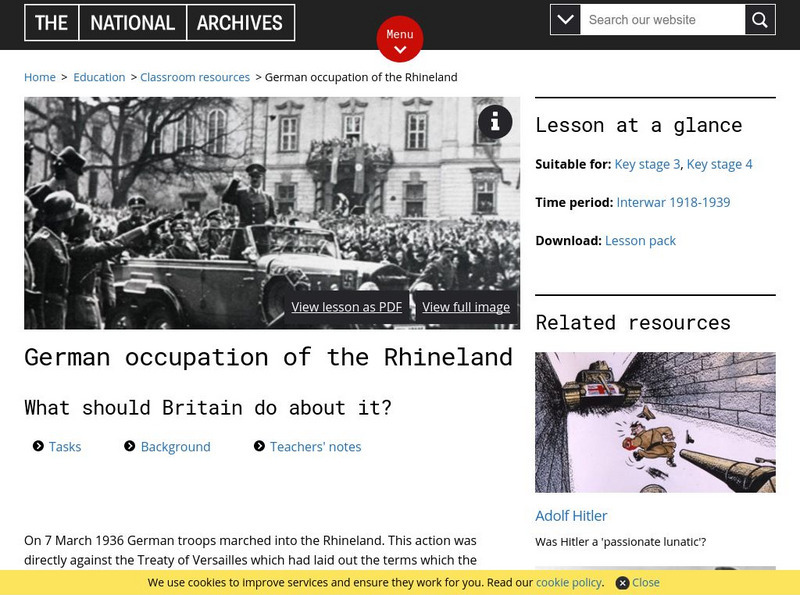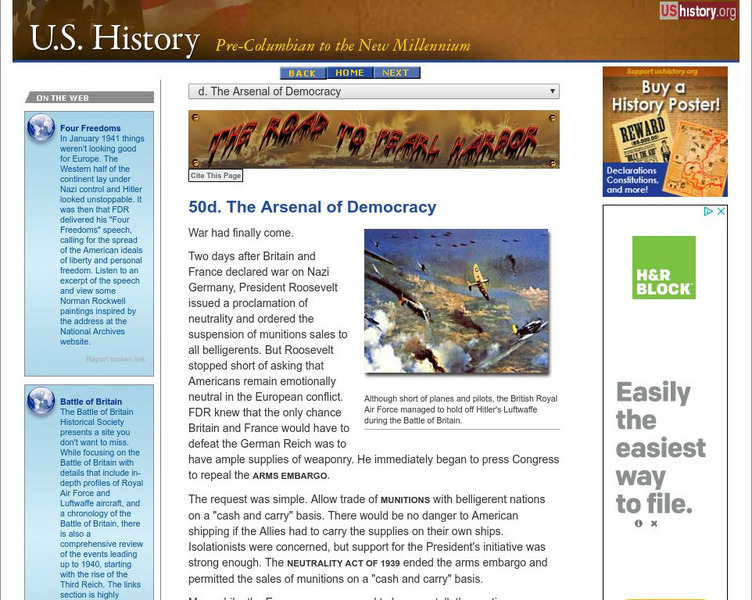Other
Armed Forces Press Service: Clinton Makes Case for Kosovo Intervention
This article from the Armed Forces Press Service summarizes and explains President Clinton's speech justifying U.S. and NATO support for intervention in Kosovo as protection against Serbian aggression.
BBC
Bbc: History: D Day: Beachhead
Historian Duncan Anderson explores the landing by Allied troops on the beaches of Normandy and discusses how meticulous planning and preparation, good luck, and bold decisions made D-Day a triumph instead of the 'ghastly disaster' it...
Library of Congress
Loc: America's Story: John Joseph Pershing
A brief biography of General John J. Pershing, head of the American Expeditionary Force in World War I. Read about his military career before the war and his life after it.
World War 1
Worldwar1.com: Great War Society: The Allies Post Caporetto Support of Italy
This is an excerpt from the book Touring the Italian Front 1917-1919 by Francis Mackay (also known as Battleground Europe). It describes the ground and operations covered by the British, French and US Expeditionary Forces deployed from...
Yad Vashem, The World Holocaust Remembrance Center
Yad Vashem: The Death March to Volary
The Death March to Volary began when Allied forces were getting closing in on the camps so the SS forced the woman to evacuate and march close to 500 miles. 1300 women began marching and only 350 survived. This online exhibit includes...
Yad Vashem, The World Holocaust Remembrance Center
Yad Vashem: Fighting for Freedom
Many Jews served in the armed forces to fight the Nazi's alongside the Allied Forces. These artifacts such as medals, uniforms, weapons, and religious items tell their story.
US Holocaust Memorial Museum
U.s. Holocaust Memorial Museum: Ohrdruf
Article about the concentration camp at Ohrdruf, a subcamp of Buchenwald. Ohrdruf was the first camp to be liberated by the Allied forces, in April 1945.
University of South Florida
Teacher's Guide to the Holocaust: Rescue and Liberation
This site offers a detailed account of the liberation of the concentration camps by Allied forces and is accompanied by numerous photos, related website links, and video clips.
PBS
Pbs: Mapping the Holocaust
When Allied forces reached the concentration camps in WWII, they were not prepared for the devastation that they saw. The soldiers filmed what they witnessed and Frontline used the footage in the documentary Memory of the Camps [57:35]...
US Department of State
U.s. Dept. Of State: In Afghanistan, a Time to Debate and Decide
The 2009 presidential elections in Afghanistan were important to both the Afghanis as well as the United States and allied forces fighting in Afghanistan. (August 3, 2009)
The Atlantic Monthly Group
In Focus: World War Ii: North African Campaign
Photograhs of the British, Australian, and American forces fighting against the Germans and Italians in the North African Campaign in an attempt to force the Axis troops from North Africa. Captions accompany each picture to add context...
Department of Defense
Do Dea: Ap Us History: Unit 7: Facing Challenges at Home and Abroad
This extensive learning module examines the role of economic fluctuations in creating new demands on the government to design reforms and how the United States became a dominant military, political, cultural, and economic force in the...
Other
Sergeant York Project: The Offensive in the Meuse Argonne
A brief overview of the operations of the American Expeditionary Forces at Meuse/Argonne between September 26 and November 10, 1918.
Teaching American History
Teaching American History: Documents on the Grand Alliance
A collection of transcripts from meetings between the United States, the Soviet Union, and Great Britain during World War II in their efforts to defeat Germany and Japan.
Brigham Young University
Byu: Wwi Document Archive: 10 November, 1918: The Armistice Demands
Translation of the official German news report of the 18 requirements of the Armistice at the conclusion of World War I, signed on November 10, 1918.
US National Archives
Nara: Teaching With Documents: In Case the D Day Invasion Failed
This site provides background information for a lesson that correlates the National Standards for Civics and Government to the study of D-Day.Site also provides documents and photo's. Many teaching resources can be found at this site.
Wikimedia
Wikipedia: Operation Overlord
To understand the invasion of Normandy, students must have at least a basic understanding of the factors, countries, and risks involved, as well as an understanding of the events leading up to it. This narrative is nicely condensed...
Veterans Affairs Canada
Veterans Affairs Canada: D Day
Examines with clarity and conciseness the role Canadian soldiers played in D-Day.
War Times Journal
War Times Journal: The Normandy Landings: D Day: June 6, 1944
A map that provides an animated view of the invasion of Normandy, June 6, 1944, by the Allied Forces.
The History Place
The History Place: The Defeat of Hitler: D Day Invasion
Describes the events that took place leading up to and during the invasion of Normandy by the Allied forces and the losses that were suffered by the Germans.
The History Place
The History Place: The Defeat of Hitler: Enter the Bunker
Describes the succession of defeats experienced by the Germans as the Allied forces advanced. Hitler conscripted old men who had served in WWI and young boys, sending them into battle where most died. Meanwhile he enacted a...
National Archives (UK)
National Archives Learning Curve: The German Occupation of the Rhineland
Partial original copies of documents from various nations of the Allies force responding to the occupation by Germans of Rhineland region.
BBC
Bbc: History: Animated Map: Operation Overlord
A nicely done Flash animation using a map of Normandy and the beaches where the D-Day invasion took place. You can trace the movement of the Allied armies into Normandy and there is a timeline showing when and what happened. Archived.
Independence Hall Association
U.s. History: The Arsenal of Democracy
Although Americans remained isolationist in their thinking, President Roosevelt understood that the European allies needed help against the Germans. Read about the incremental ways America became involved in World War II in Europe...



